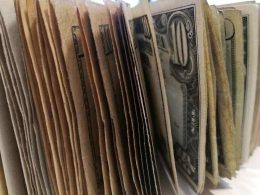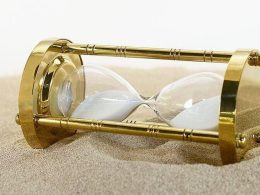A BIK score plays a huge role when applying for any type of bank loan. Whether you are looking for a loan to buy a home, a cash loan or are interested in an installment loan, how you have paid off your loans so far can determine whether you will get financing. Let’s find out what affects the BIK score and how to take care of a good credit score.
What is the BIK?
The BIK, or the Credit Information Bureau, is a private institution whose purpose is to collect, process and make available to financial entities credit information on all consumer loans, special purpose loans, investment loans and other commitments made to financial institutions.
The BIK database receives information on all loans and credits taken out from banks from all over the country. It doesn’t matter whether it’s a credit card, revolving limit, cash loan, mortgage or car loan. This is because in the BIK database we will find all active, as well as closed commitments. This information is processed by the BIK for a minimum of 5 years after the financial commitment is completely closed.
IMPORTANT: In order to remove a given commitment from the BIK database, you need to withdraw your consent to data processing, but the Credit Information Bureau, will not delete the information if it has not yet passed 5 years since the repayment of the commitment. This follows directly from the law, and in practice, marketing “BIK cleaning” or other such services will be of no use.
What is the BIK score?
BIK score, otherwise known as scoring, is a system that is based on how we handle the repayment of bank obligations and what type of borrower we are. It is based on several indicators that ultimately affect our credit score. The lower it is, the less chance we have of receiving other financing in the future. The higher it is, the easier it is to get a new loan or credit.
On the basis of the BIK score, most banks are able to decide whether to grant or deny financing automatically, but this is usually only the case with cash loans or installment purchases. Wherever a bank analyst is not needed to evaluate a loan application, that is usually for smaller loans.
In the case of larger obligations, such as a car loan, home equity loan, consolidation loan or investment loan, the BIK score also plays a key role, but usually such an application is considered by an analyst who can take a close look at the credit history and examine the applicant’s creditworthiness.
What affects the BIK score?
People looking for cash loans, home loans, car loans or other bank loans often ask what affects the BIK score. The answer is relatively simple, because the Credit Information Bureau itself tells you exactly what to look out for when using financial products.
BIK scores are generally affected by four factors, and they are: timeliness, usage, application, experience. We will discuss each of these separately below.
BIK score – timeliness of repayments
The biggest influence on the BIK score is the timeliness of repayment of previous loans. It is worth noting at this point that the BIK shows even the slightest delays, which can also affect the overall BIK score. Although institutions insist that delays of up to 30 days do not have a major impact on the credit decision, we know from experience that they lower the overall score.
BIK score – usage
Another important factor affecting the BIK score is usage, or more precisely, how and with what frequency we use the money we borrow from banks. If we frequently reach for a revolving limit, a limit on a credit card, or frequently make installment purchases, the BIK score drops.
BIK score – applying
Quite an important factor affecting the BIK score is how often we apply for new financial products. BIK analyzes inquiries that come into the bureau over the past 12 months. When there are too many inquiries, the BIK score drops. Why? Because for banks, a person who frequently seeks external financing is characterized by a higher propensity for risk.
BIK score – experience
An important element that affects the BIK score is the experience of the borrower. If we have only been using financial products for a year or two, for example, this indicator will also automatically lower our score. Unfortunately, but building a credit history usually takes a minimum of several years. Therefore, there is no choice but to be patient, pay installments on time and wait for the scoring to rise.
Building a good credit history
Building a good credit history is a tedious and time-consuming process. We can neither build a good history nor earn a high BIK score in just a year or a few months. If there is little data about us in the BIK, it is a good idea to take out a small debt and repay it regularly on the dates indicated in the repayment schedule.
You can start building your credit history with installment purchases or a small cash loan. During this time, let’s not take out other credit obligations. Let’s pay off the current one and only then can we apply for another one. This is because the BIK score affects not only whether you get another loan at all, but also determines what kind of offer you can expect from the bank. The higher the BIK score, the lower the cost of credit. It is worth remembering this and building a good credit history.




